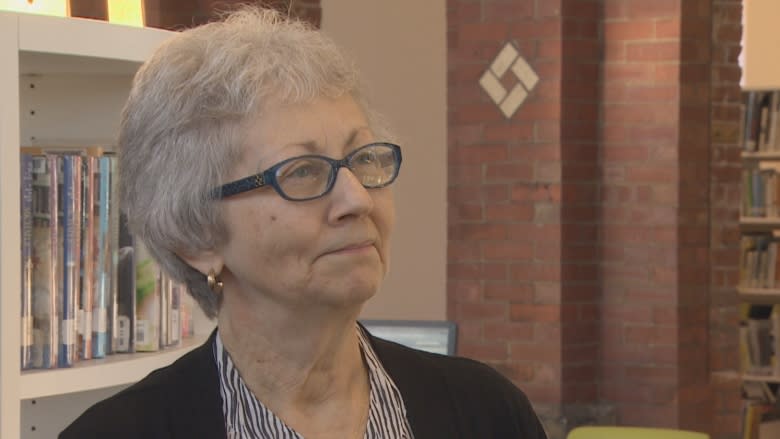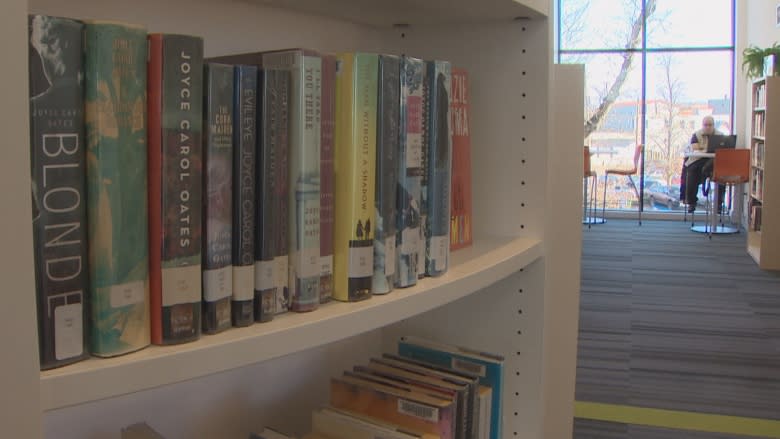Libraries walk a financial 'tightrope,' hope for lifeline from province
At this point in her career Janet Pelley could probably write a book about financial challenges at libraries.
"They'd just come out of a funding crisis when I joined this library in 1976."
Much has changed between then and now but Pelley, the director of the Colchester-East Hants Public Library system, still finds herself dealing with funding limitations even as she's months away from retirement.
Libraries across the province are facing the grim reality that without more help very soon, many of them will be faced with difficult decisions. For some time now, the province has budgeted $14.4 million for libraries.
Denise Corey, chief librarian for Cumberland Public Libraries, said in the past 12 years they've had a 1.3 per cent increase in funding.
"And I don't mean 1.3 per cent a year, I mean 1.3 per cent," she said. "What we do is we just keep cutting in the background, because we don't want to affect our patrons."
They held off as a long as possible from going public about their struggles, not wanting to worry the public, but Corey said they've reached a breaking point.
Most libraries get about 75 per cent of their funding from the province. They must raise three per cent of their operating budget themselves and the balance comes from local municipalities. Fundraising is as much a part of the job now as overseeing programs.
"The budget that we're putting out is really nickle and dimeing," said Corey. "All staff put their bottles in one box and we take it to the recycling and we put that money back in the library."
'Walking on a tightrope'
Corey, Pelley and the rest of their colleagues around the province are holding out hope that help might be on the way. A committee made up of representatives from municipalities, libraries and the province's Communities, Culture and Heritage Department is meeting to discuss core library services and the future.
Warden Jimmy MacAlpine of the Municipality of the District of Digby sits on the committee. It's his hope the work will help convince the province to increase funding.
"A lot of them are walking on a tightrope in a lot of ways with their funding," he said. "[Libraries] do so much more than just provide books and that's the message we're trying to drive home."
Troy Myers, chief librarian for South Shore Public Libraries, hopes the government is able to see the way libraries have evolved through the years, providing literacy services, programs for immigrants and whatever else a given community might need.
"I'm just hoping the province really does understand that public libraries are fundamental to the health of a community," he said.
"I can't think of any place other than a public library that really welcomes everybody without prejudice."
Corey and Pelley have likewise watched as their branches have morphed into community focal points where kids can come to play, internet access is guaranteed, seniors can get technology instruction or people can simply have a safe, warm and friendly place to spend the day.
They're all seeing increased patronage, but more people creates more demand and that demand needs more money. Even in Truro, where the town recently opened a new library that would be the envy of any town, Pelley finds herself wishing she had more staff and more money to pay them.
"We're really just in a place where we need to be supported," said Corey.
"A community hub is not as common as it used to be. There used to be places where people could go and gather and now I think that that has become the library."
MacApline said the committee hopes to have a report ready to present to the government this spring, ahead of the provincial budget. The Communities, Culture and Heritage Department would not make anyone available for an interview.






